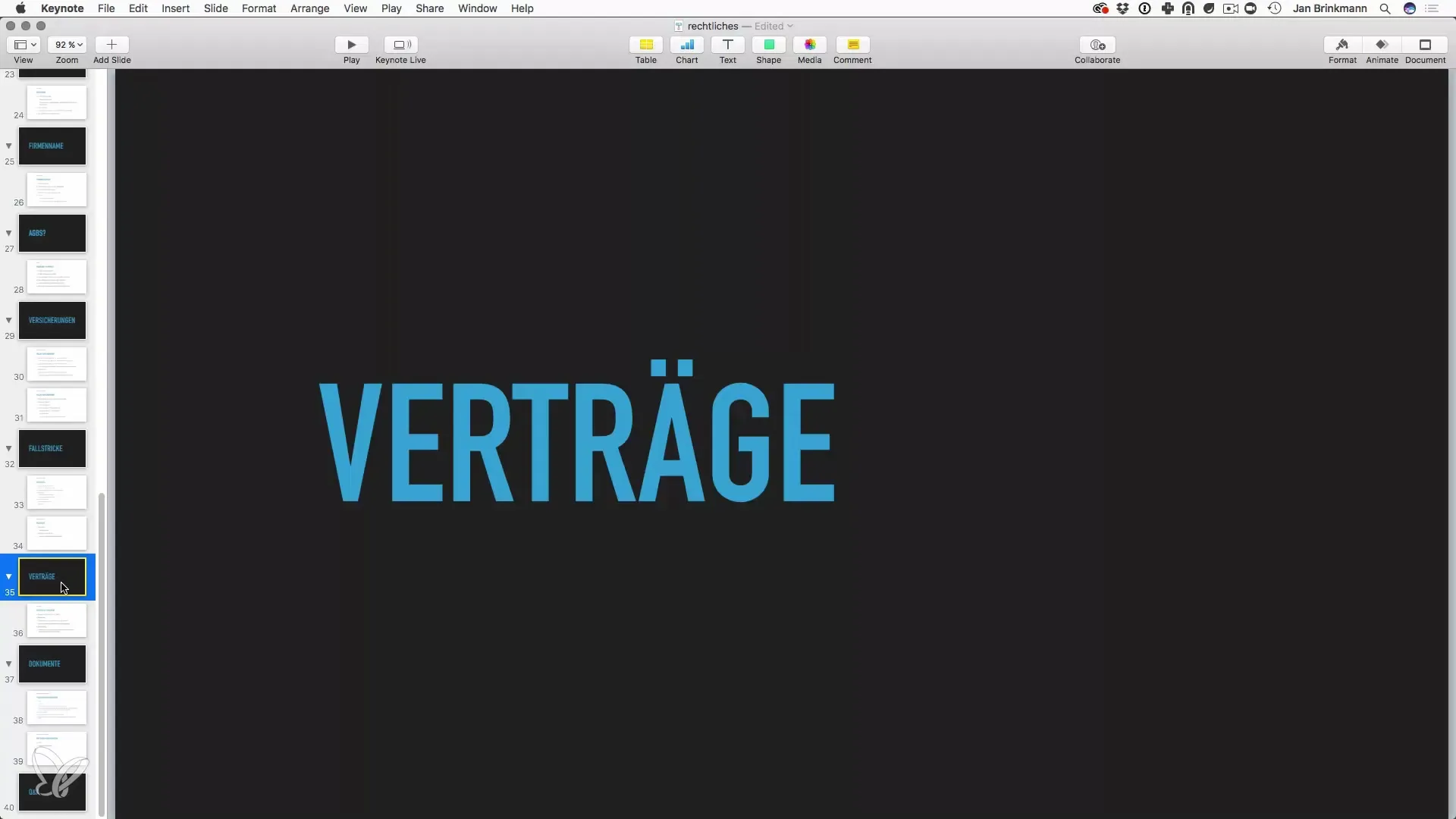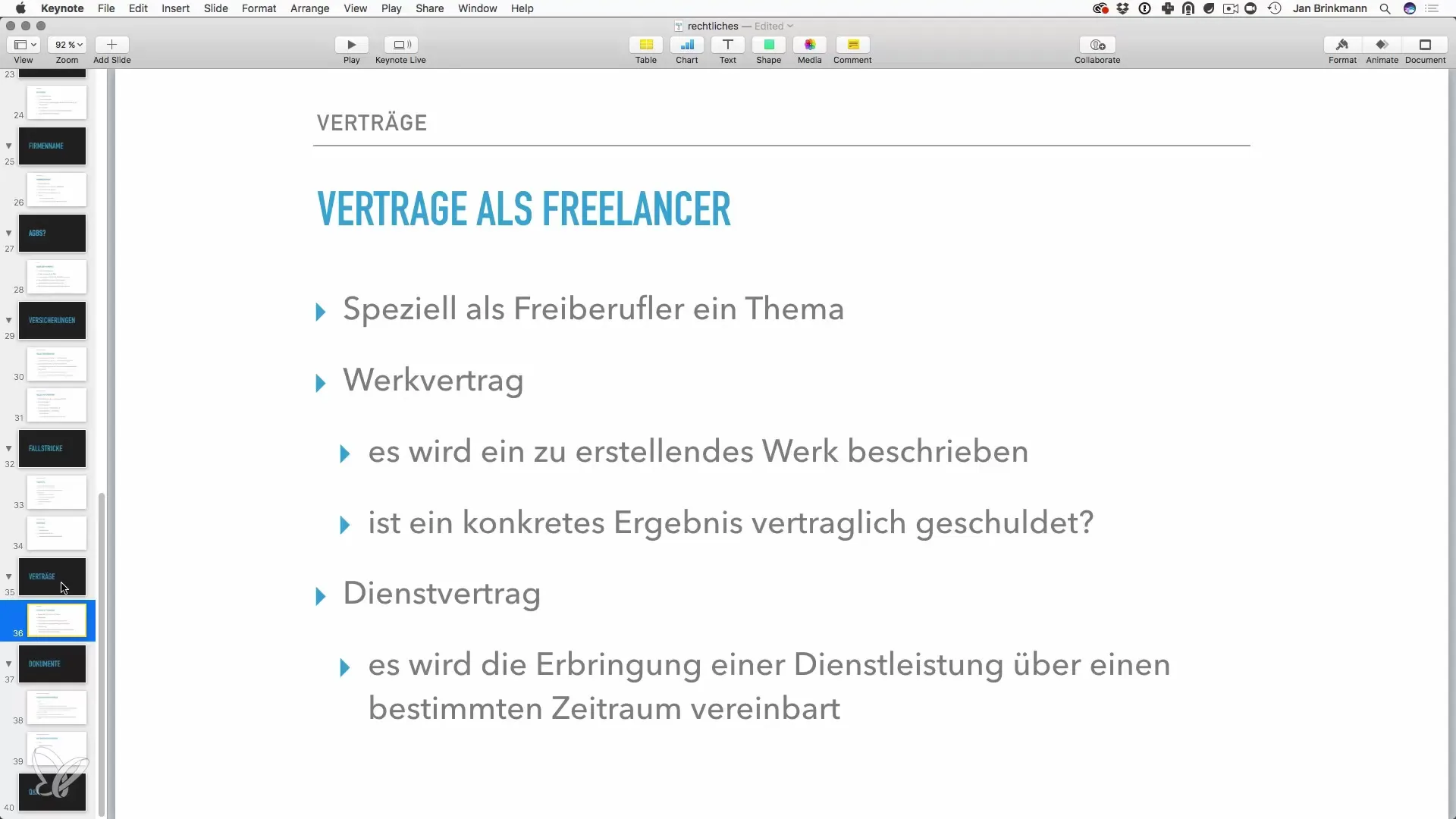In the world of freelancing, contracts are not just a necessary evil, but play a crucial role in your success. They ensure that your services are clearly defined and prevent misunderstandings or legal issues. However, not all contracts are the same. In this tutorial, you will learn which types of contracts are relevant for you as a freelancer and how to use them effectively for your projects.
Key Insights
- The difference between work contracts and service contracts is crucial for contract design.
- Individual adjustments of the contract are essential, as standard templates often bring legal uncertainties.
- A work contract obliges the delivery of a specific result, while a service contract regulates the provision of a certain amount of services.
- For complex projects, legal advice from professionals should be sought.
Step-by-Step Guide
1. Understanding Contract Basics
Before you start creating a contract, you need to understand the basic terms related to contracts. As a freelancer, you should be clear about the obligations you are entering into with your clients. The key terms are "work contract" and "service contract," and both have their specific requirements and legal consequences.

2. Work Contracts in Detail
A tool that is especially important for you as a freelancer is the work contract. With a work contract, you commit to delivering a specific result, for example, the development of an app or a website. It is important to describe everything in detail. The client must know exactly what they are getting and under what conditions.

3. Understanding Service Contracts
Equally important is the service contract, which offers you a flexible way to provide services within a specific time frame. Unlike a work contract, you do not have to deliver a specific result here, but an agreed number of service days. This can be advantageous for you, especially if the precise requirements of the client have not yet been established.
4. Defining Contract Contents
When drafting a contract, it is important to define clear contract contents. This includes not only the description of the services to be provided but also the regulation of payment modalities and deadlines. The more precise the wording, the lower the risk of misunderstandings.
5. Seeking Legal Advice
For more complex projects or large sums, it is advisable to seek legal advice. A lawyer or business consultant can often provide valuable tips and inform you about the specific legal requirements. Especially if you are uncertain about how to structure a contract, this is an important step.
Summary – Successful as a Freelancer: Contracts for Your Start-up
In this guide, you have learned that it is essential for you as a freelancer to distinguish between work contracts and service contracts. Individuality in contract design is vital to meet the specific requirements of your project. Always remember to seek legal support for large projects to protect your rights.
Frequently Asked Questions
What role do contracts play for freelancers?Contracts define the obligations and services between you and your client, thus protecting both parties.
What is the difference between a work contract and a service contract?A work contract obliges the delivery of a specific result, while a service contract regulates the provision of a certain amount of services.
Who can help me with drafting contracts?Lawsyers, business consultants, or tax advisors are good contacts for legal support with contracts.
How important is the individual adjustment of contracts?Individual adjustment is crucial as standard templates often do not meet your specific needs and legal conditions.
What risk is there in using templates for contracts?Templates can bring legal uncertainties if they are not tailored to the specific situation.


